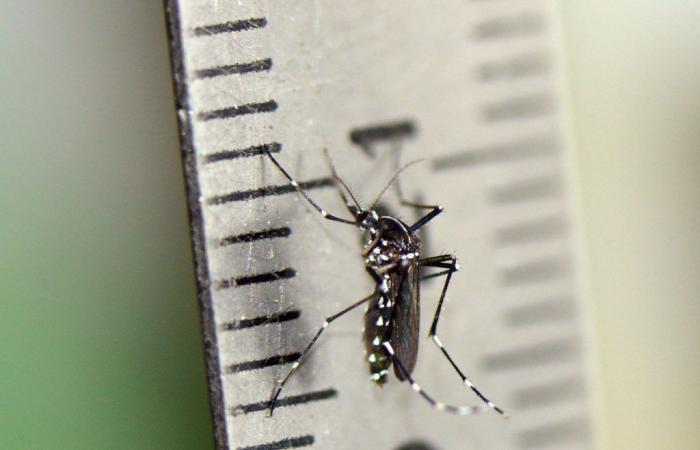The presence in Córdoba of the tiger mosquito (Aedes albopictus), native to Southeast Asia, would be influencing the sustained increase in dengue cases, health authorities warned.
According to María Inés Buelvas, a leading doctor for epidemiological surveillance at the departmental Health Secretariat, As there are a greater number of vector sources, an increase in cases of this viral disease is expected.
This insect, known for its ability to transmit other viruses such as Chikungunya and Zika, has expanded significantly in various locations in Córdoba, complicating efforts to contain epidemiological outbreaks.
“We believed it was contained in the south of Córdoba, but we already have an extended presence in Montería and other municipalities and we believe that explains this number of cases, which are 46% higher than the same date last year,” added the official.
The Aedes albopictus, commonly called the tiger mosquito because of its characteristic black and white stripes, found in the temperate climate and favorable environmental conditions of Córdoba a suitable habitat for reproduction.
This species, native to Asia, has quickly adapted to the urban and peri-urban environment, multiplying its presence in residential and recreational areas.
Faced with this challenge represented by the presence of Aedes albopictus in Córdoba, the authorities emphasize the need for coordinated and sustained action with the community to eliminate breeding sites and larvae, the peculiarity of this mosquito is that it can reproduce in clean waters.
#Colombia






